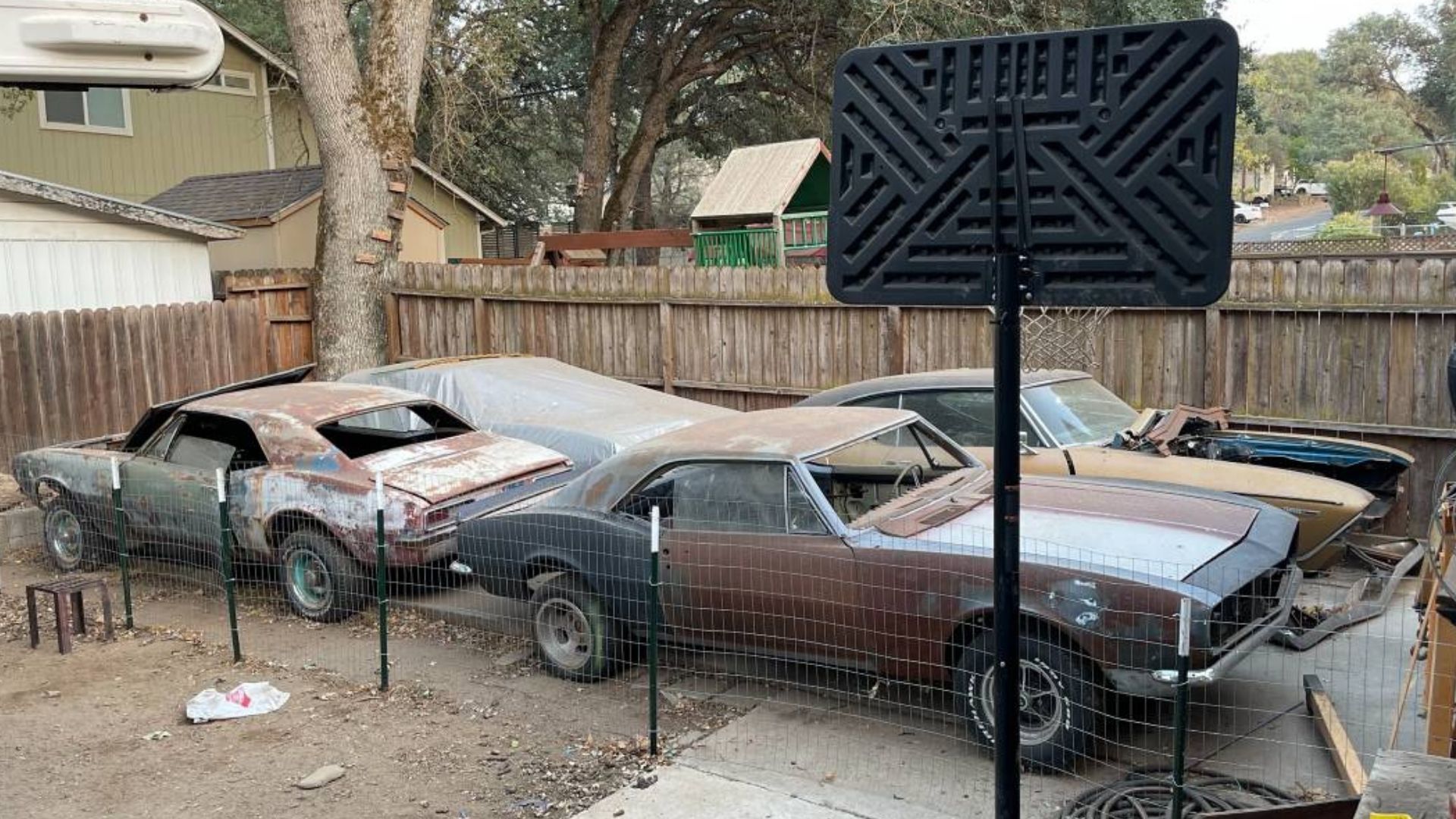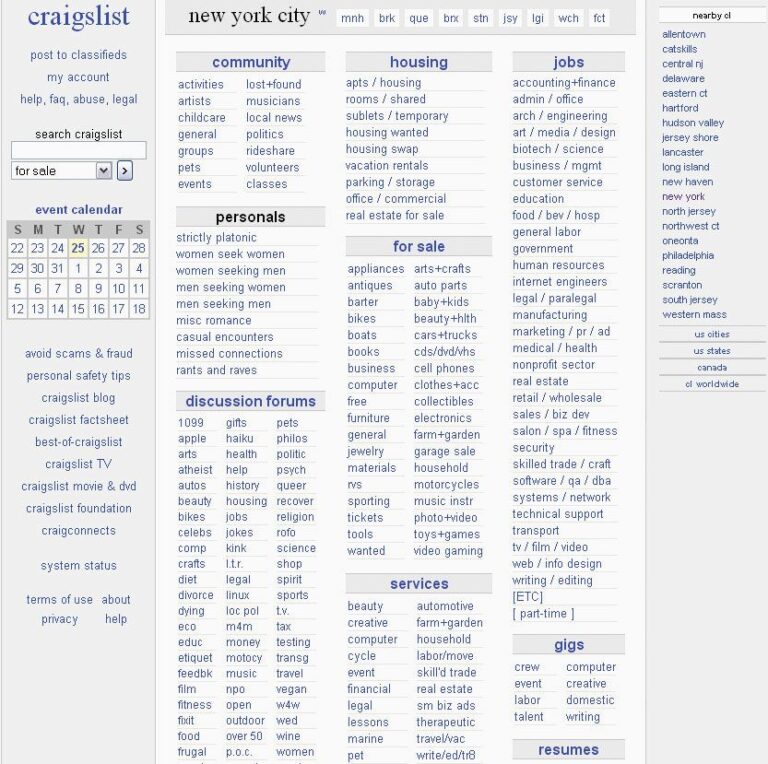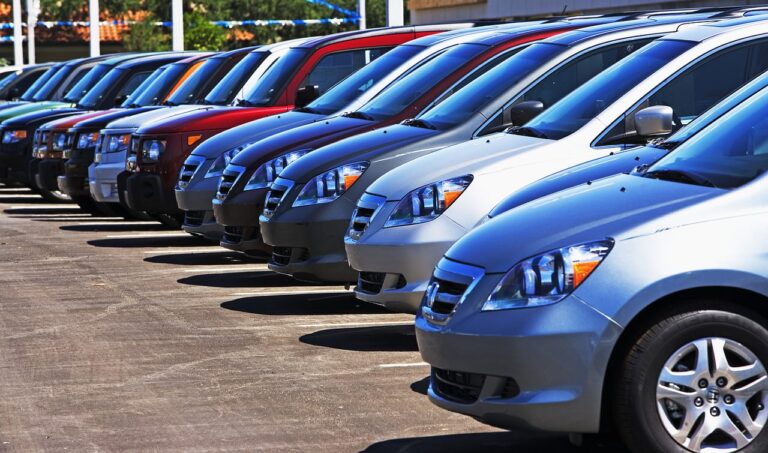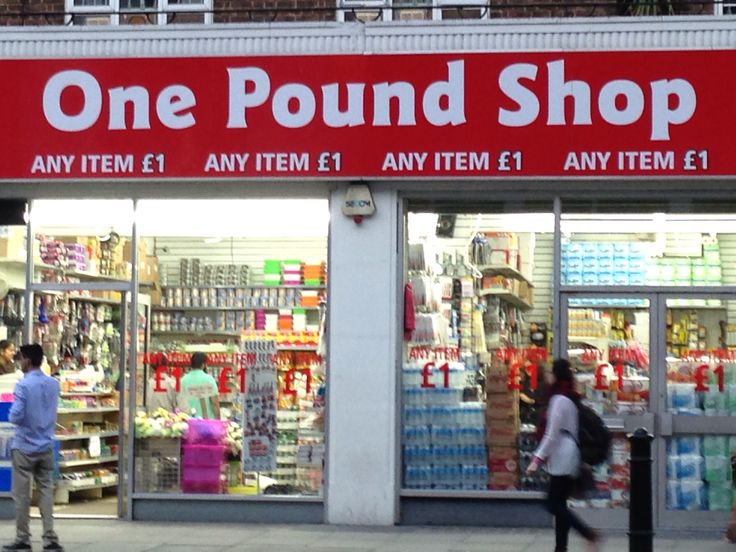Free Cars Craigslist: Navigating the World of Zero-Cost Vehicles
Free Cars Craigslist: Navigating the World of Zero-Cost Vehicles cars.truckstrend.com
An Introduction to the Allure of "Free Cars Craigslist"
The phrase "Free Cars Craigslist" conjures images of a miraculous find – a fully functional vehicle available at absolutely no cost. For many, the idea of acquiring a car without a purchase price is incredibly appealing, especially in an era where transportation costs continue to rise. Craigslist, as a vast online classifieds platform, has long been a go-to for finding everything from furniture to jobs, and yes, even vehicles. While the notion of a truly "free" car often comes with a significant asterisk, the platform indeed hosts a unique niche where vehicles are offered for the cost of removal, repair, or merely a handshake.
Free Cars Craigslist: Navigating the World of Zero-Cost Vehicles
This article delves deep into the reality of "Free Cars Craigslist," exploring what this term truly signifies, the opportunities it presents, and the considerable challenges one must navigate. We’ll unpack the various scenarios behind these "free" listings, provide practical guidance on how to search and evaluate them, highlight the essential considerations before committing, and equip you with the knowledge to potentially turn a perceived burden into a valuable asset. Whether you’re a seasoned mechanic, a DIY enthusiast, or simply someone in desperate need of affordable transportation, understanding the nuances of "Free Cars Craigslist" is crucial to avoid common pitfalls and maximize your chances of a successful acquisition.
Understanding the "Free" in Free Cars Craigslist
The most critical aspect to grasp when encountering a "free car" listing on Craigslist is that "free" rarely means zero effort or zero cost. Instead, it usually implies that the seller is not asking for a monetary transaction for the vehicle itself. The underlying reasons for this generosity are varied and almost always come with caveats:
- "Free for Parts": This is perhaps the most common scenario. The car is beyond economical repair for the owner, or they’ve already salvaged valuable components. They simply want it gone and are offering it to anyone willing to tow it away for its remaining useful parts.
- "Free if You Tow It": The car is non-running, perhaps due to a major mechanical failure, or it’s simply been sitting for too long. The owner doesn’t want to pay for towing or disposal and is offering it to anyone who can remove it from their property. The "cost" here is primarily the towing fee.
- "Free if You Fix It": This implies a project car. The owner knows it needs significant work (engine, transmission, major electrical issues) and either lacks the time, money, or expertise to fix it. They are essentially giving away a problem, hoping someone else sees potential.
- End-of-Life Vehicles/Junk Cars: Sometimes, people just want to get rid of an old clunker that’s taking up space. It might not run, or it might be rusted out, but it’s often offered "free" to avoid the hassle and cost of taking it to a scrapyard themselves.
- Abandoned Vehicles: While less common and legally tricky, sometimes people offer cars they’ve found abandoned on their property. Extreme caution is advised here, as acquiring such a vehicle without proper legal channels can lead to severe issues.
- Nominal Value/Trade: Less often truly "free," but some sellers might list a car as "free" but then state in the description they’d consider a trade for something specific, or a very low nominal fee (e.g., $100 to cover title transfer).

The "free" aspect, therefore, usually shifts the financial burden from the purchase price to the costs of towing, repairs, title transfer, and potential disposal. It’s a transaction where convenience for the seller is traded for potential value (or headaches) for the buyer.
The Appeal and Benefits of Seeking a "Free" Car

Despite the inherent challenges, the pursuit of a "free" car on Craigslist holds significant appeal for various reasons:
- Unbeatable Initial Cost Savings: The most obvious benefit is avoiding the upfront purchase price of a vehicle. Even a few hundred dollars saved can be substantial for someone on a tight budget.
- Opportunity for DIY Enthusiasts: For those with mechanical skills, tools, and a passion for automotive repair, a "free" car can be a dream project. It offers a hands-on learning experience and the satisfaction of bringing a vehicle back to life.
- Source of Affordable Parts: Many "free" cars are acquired purely for their components. If you own a similar make and model, a "free" donor car can provide a wealth of spare parts at no initial cost, saving you hundreds or thousands on new or used parts from traditional sources.
- Learning and Skill Development: Working on a "free" car provides an invaluable opportunity to learn about automotive systems without the pressure of potentially damaging a more expensive vehicle. It’s a low-stakes environment for skill acquisition.
- Emergency Transportation Solution (with caveats): In dire situations, if you can quickly get a "free" car running with minimal repair, it can serve as a temporary solution for transportation needs, buying you time to save for a more reliable vehicle.
- Environmental Responsibility: By taking a car that would otherwise be scrapped or abandoned, you’re potentially giving it a second life or ensuring its components are recycled, contributing to less waste.
- Flipping Potential (for the savvy): For those with exceptional mechanical prowess and market knowledge, a "free" car that only requires a few hundred dollars in repairs could potentially be cleaned up and resold for a modest profit. This is high-risk, high-reward.

The appeal lies in the potential for significant value creation out of something seemingly worthless. However, realizing these benefits demands careful planning, realistic expectations, and often, a considerable investment of time and effort.
How to Navigate Craigslist for Free Cars: A Step-by-Step Guide
Successfully finding a "free" car on Craigslist requires more than just typing "free car" into the search bar. It involves strategic searching, diligent vetting, and prompt action.
-
Strategic Searching:
- Keywords: Don’t just use "free." Expand your search to include terms like "junk car," "parts car," "project car," "mechanic special," "needs work," "salvage title," "won’t start," "take away," "needs towed."
- Price Filter: While you might be looking for "free," Craigslist’s price filter can be useful. Set the minimum price to $0 and the maximum to a very low amount (e.g., $100 or $500) to catch nominally priced vehicles that are essentially "free" projects.
- Location: Narrow your search to your local area or a manageable radius. Remember, towing costs increase significantly with distance.
- Check Regularly: Good deals, even "free" ones, go fast. Set up email alerts if Craigslist offers them, or make it a habit to check the listings multiple times a day.
-
Identifying Legitimate Listings:
- Detailed Descriptions: Legitimate sellers will usually provide a candid description of the car’s condition, known issues, and why they’re giving it away. Be wary of overly vague or enthusiastic descriptions.
- Photos: Listings with multiple, clear photos are generally more trustworthy. Look for pictures that show the car from different angles, including the interior and engine bay if possible. A lack of photos or poor-quality images can be a red flag.
- VIN (Vehicle Identification Number): A serious seller might provide the VIN in the listing or be willing to provide it upon request. This allows you to run a history report (though a free car might not warrant the cost of a full report, you can check for stolen vehicles or open recalls).
- Honesty about Issues: A seller who openly admits to major mechanical problems or title issues is often more trustworthy than one who claims a "free" car just "needs a battery."
-
Initial Contact and Due Diligence:
- Be Polite and Direct: When contacting the seller, be courteous and get straight to the point. Express your interest and ask specific, concise questions.
- Key Questions to Ask:
- "Do you have the clear title in your name?" (Crucial! No title = walk away.)
- "Why are you giving the car away?"
- "What are the major known issues with the car?"
- "When was the last time it ran/was driven?"
- "Has it ever been in a major accident?"
- "Is it currently registered/insured?" (Unlikely for a "free" car, but good to know.)
- "Is it complete, or are parts missing?"
- Arrange a Viewing: Always insist on seeing the car in person before committing. Bring a friend who is knowledgeable about cars if you are not.
- Do Not Send Money: Never send any money or personal information before you’ve seen the car and verified the title. Scammers often ask for upfront deposits.
By following these steps, you can significantly improve your chances of finding a genuine "free" car opportunity and avoid wasting your time or falling victim to scams.
Crucial Considerations Before Taking a "Free" Car
Acquiring a "free" car is an exciting prospect, but it comes with a unique set of responsibilities and potential hidden costs. Thorough consideration of these factors is paramount to avoid turning a "free" gift into an expensive headache.
-
Title and Registration: This is arguably the most critical aspect.
- Clear Title in Seller’s Name: Absolutely non-negotiable. If the seller doesn’t have the clear title, or it’s not in their name, walk away. Acquiring a title for a car without one is notoriously difficult, often impossible, and varies greatly by state. You could end up with an unregisterable paperweight.
- Salvage Be aware if the title is "salvage." This means the car was declared a total loss by an insurance company. While it can be rebuilt, it requires a special inspection in most states to be registered, and its value will always be significantly lower.
- Bill of Sale: Even for a "free" car, get a bill of sale that includes the VIN, make, model, year, and states "zero cost" or "gift." This helps prove ownership for title transfer.
-
Condition Assessment:
- Mechanical Inspection: Assume the car does not run or has major issues. If possible, bring a mechanic or a mechanically inclined friend to inspect it. Look for rust (especially structural), fluid leaks, signs of major engine/transmission failure, and overall completeness.
- Tires and Brakes: These are critical safety items. Even if the car runs, if it needs new tires and brakes, that’s a significant immediate cost.
- Interior/Exterior: While less critical for functionality, severe interior damage or body rust can indicate overall neglect and further hidden issues.
-
Towing/Transportation Costs:
- Unless the car is drivable (rare for "free" cars), you will need to arrange and pay for towing. Get quotes beforehand. This can easily be $50-$500 or more, depending on distance and vehicle size. This is often the first real cost of a "free" car.
-
Repair Costs:
- This is where the "free" car can become very expensive. Be realistic about the potential repair costs. A non-running engine, bad transmission, or severe electrical issues can easily cost thousands to fix, quickly exceeding the value of the vehicle.
- DIY vs. Professional: If you plan to do the repairs yourself, factor in the cost of parts and your time. If you need professional help, get quotes.
-
Insurance:
- Can you even insure a salvaged or non-running vehicle? Insurers may have specific requirements for vehicles with salvage titles or those that have been off the road for a long time.
-
Disposal/Scrap Value:
- What if the car is truly beyond repair, even for parts? You’ll need to pay to have it removed by a junkyard or a scrap metal dealer. Factor in these potential disposal costs upfront. Some junkyards will pay a small amount for the metal, but others might charge a pickup fee.
By thoroughly evaluating these critical considerations, you can make an informed decision about whether a "free" car is a genuine opportunity or a potential money pit.
Common Types of "Free" Cars You’ll Find
The spectrum of "free" cars on Craigslist is wide, each category presenting its own set of expectations and challenges:
-
The "Parts Car":
- Description: Often explicitly listed as "parts only." These vehicles are usually incomplete, have catastrophic mechanical failures, or are severely damaged (e.g., flood damage, major accident). The owner simply wants it gone.
- Expectations: Do not expect it to run or be easily repairable. Its value lies solely in its salvageable components.
- Considerations: Verify which parts are present and in good condition. Be prepared to dismantle it yourself or pay for professional removal.
-
The "Project Car":
- Description: This car might have a clear title and a relatively intact body, but requires significant mechanical work to be roadworthy. The seller is usually honest about major issues (e.g., "needs new engine," "transmission slipped," "electrical nightmare").
- Expectations: This is for the serious DIY enthusiast. It will require substantial time, effort, and financial investment in parts.
- Considerations: Assess the extent of the work needed against your skills, tools, and budget. Research parts availability and cost for the specific make and model.
-
The "Needs a Battery/Tires" Car:
- Description: Sometimes, a car truly just needs basic maintenance to run. An owner might be moving, or simply neglected the vehicle, and the battery died, or tires went flat.
- Expectations: This is the rare "diamond in the rough" but is often a bait-and-switch. Assume there are deeper issues unless proven otherwise.
- Considerations: Bring a jump pack and tire inflator if possible. If it starts and runs, listen for engine knocks, check for smoke, and test the brakes. A quick test drive (if safe and legal) is invaluable.
-
The "End-of-Life" Vehicle:
- Description: This is a car that’s at the very end of its usable life. It might barely run, or not at all, and is riddled with rust, dings, and mechanical issues. The owner just wants it off their property before they have to pay a junkyard.
- Expectations: Minimal to no resale value. Primarily useful for scrap metal or a few very basic parts.
- Considerations: Focus on easy removal. Don’t expect to make it roadworthy without extensive, uneconomical repairs.
-
The "Abandoned" Vehicle:
- Description: A car left on private property by a previous tenant or unknown party.
- Expectations: High legal risk. You cannot simply take ownership.
- Considerations: Do not touch these unless you understand and are prepared to follow complex state laws regarding abandoned property, which often involve police reports, public notices, and long waiting periods. It’s usually not worth the hassle.
Understanding these categories will help you quickly gauge the true nature of a "free" listing and align your expectations with the reality of the offer.
Tips for a Successful "Free" Car Acquisition
Approaching a "free" car deal with a strategic mindset can make all the difference between a successful project and a frustrating failure.
- Be Patient, But Act Quickly: Good "free" deals are rare and disappear fast. While you shouldn’t rush into a bad deal, be prepared to act decisively when a promising one appears.
- Bring Knowledge and Tools: If possible, bring a mechanically inclined friend, a jump starter, basic tools, a flashlight, and even a tire pressure gauge. This allows for a more thorough initial inspection.
- Prioritize the As stressed before, a clear title in the seller’s name is paramount. Without it, the car is essentially worthless to you for legal road use. Don’t waste your time on cars without proper documentation.
- Assume the Worst, Hope for the Best: Go into every "free" car viewing assuming it’s a non-runner with major issues. This mindset helps you spot problems and avoid disappointment.
- Have a Budget for Repairs and Towing: Before you even look at a car, decide how much you’re willing to spend on towing and initial repairs. Stick to this budget.
- Negotiate (Even for "Free"): While the car is "free," you might be able to negotiate for the seller to assist with towing costs, or for them to include any spare parts they have.
- Verify the VIN: Cross-reference the VIN on the car with the VIN on the title. Ensure they match perfectly.
- Safety First: When meeting sellers, especially in unfamiliar areas, always meet in a public place during daylight hours if possible, and let someone know where you’re going. Bring a friend.
- Don’t Be Afraid to Walk Away: If anything feels off – the title isn’t clear, the seller is evasive, or the car is a far worse condition than described – simply walk away. There will be other opportunities.
- Research Common Issues: If you’re looking at a specific make/model, research its common mechanical issues beforehand. This can help you quickly identify potential major problems during inspection.
Potential Challenges and Solutions
Despite the best intentions, acquiring a "free" car can present various challenges. Being aware of them and having potential solutions in mind can save you significant grief.
- Challenge: Scams and Misleading Listings.
- Solution: Be skeptical of "too good to be true" offers. Always insist on seeing the car and title in person before any commitment or money exchange. Avoid listings with vague details, no photos, or pressure tactics. Meet in public places.
- Challenge: Hidden Mechanical Problems.
- Solution: Conduct the most thorough inspection possible. Bring a knowledgeable friend. If the car is critical to your transportation needs, consider paying for a pre-purchase inspection from a mobile mechanic, though this might negate the "free" aspect. Assume unknown problems will arise.
- Challenge: Title Issues (No Title, Salvage Title, Lien).
- Solution: Unless you are acquiring purely for parts and have no intention of ever registering it, do not take a car without a clear title in the seller’s name. Salvage titles require special rebuilding and inspection processes. Liens mean someone else has a financial claim to the car. Walk away from any title ambiguity.
- Challenge: Unexpected High Repair Costs.
- Solution: Set a strict budget for repairs from the outset. Prioritize essential repairs for safety and functionality. If the repair costs spiral out of control, be prepared to cut your losses, sell usable parts, or scrap the vehicle. Don’t throw good money after bad.
- Challenge: Towing and Transportation Logistics.
- Solution: Research local towing services and get quotes before you commit to taking the car. Some sellers might be willing to help arrange or even cover a portion of towing if they are desperate to get rid of the vehicle.
- Challenge: Disposal Costs if Project Fails.
- Solution: Factor in the possibility that the car might be unfixable. Research local junkyards or scrap metal dealers. Understand their policies and whether they charge for pickup or pay for scrap. This can be a few hundred dollars.
- Challenge: Overwhelm and Lack of Expertise.
- Solution: Be realistic about your own mechanical skills and available time. Don’t bite off more than you can chew. If you’re new to car repair, start with simpler projects. Consider joining local automotive enthusiast groups for advice and potential help.
Table: Understanding the True "Cost" of a "Free" Car from Craigslist
The term "free" on Craigslist for cars is often misleading. While the initial purchase price might be $0, various associated costs can quickly add up. This table outlines the typical expenses and potential savings involved, giving you a clearer picture of the true financial commitment.
| Category/Item | Description | Estimated Cost Range (USD) | Notes |
|---|---|---|---|
| Initial Acquisition | |||
| "Free" Car Price | The advertised cost of the vehicle itself. | $0 | This is the primary allure, but rarely the total cost. |
| Towing/Transport | Getting the non-running vehicle from the seller’s location to yours. | $50 – $500+ | Essential for most "free" cars. Varies significantly by distance, vehicle size, and towing service rates. Often the first unavoidable cost. |
| Legal & Administrative | |||
| Title Transfer Fees | State-specific fees for transferring vehicle ownership into your name. | $10 – $100 | Mandatory for legal ownership and registration. Without a title, the car is essentially worthless for road use. |
| Registration Fees | Annual or biennial fees required to legally operate the vehicle on public roads. | $20 – $200+ | Varies by state and vehicle type. |
| Sales Tax | Applied to the vehicle’s value during title transfer (even if "free"). | 0% – 8% of nominal value | Some states require tax based on a declared nominal value (e.g., $100) or a standard book value, even if the purchase price was $0. |
| Salvage Title Inspection | Required in many states to convert a "salvage" title to a "rebuilt" title. | $50 – $200 | Necessary if the car has a salvage title and you intend to make it road-legal. Often involves a rigorous safety inspection. |
| Repair & Maintenance | (Highly variable, depends on car’s condition and your DIY skills) | ||
| Basic Fluids/Filters | Oil change, coolant, brake fluid, air filter, spark plugs. | $50 – $200 | Good practice for any newly acquired used car, especially one that has been sitting. |
| Battery | If dead or old, a common reason for a non-starting "free" car. | $100 – $250 | A relatively easy fix that can sometimes get a car running. |
| Tires | If old, flat, dry-rotted, or unsafe. | $300 – $800+ | Critical safety component. Can be a significant immediate expense. |
| Brakes | Pads, rotors, calipers, brake lines. | $200 – $1000+ | Another vital safety system. Components can seize or wear out from disuse. |
| Engine Repair | Major issues like seized engine, blown head gasket, timing belt. | $500 – $3000+ (or more) | Often the reason a car is "free." Can quickly exceed the vehicle’s potential value if professional labor is needed. |
| Transmission Repair | Automatic or manual transmission failure. | $1000 – $4000+ | Another common reason for "free" cars. Repair or replacement is extremely costly. |
| Rust Repair | Frame, body, or suspension component rust. | $100 – $1000+ (ongoing) | Can be a continuous battle in older or neglected vehicles, affecting safety and structural integrity. |
| Ongoing Costs | (Once the car is roadworthy) | ||
| Auto Insurance | Liability, comprehensive, and collision coverage. | Varies widely | Mandatory to drive legally. Premiums can be higher for salvaged vehicles. |
| Fuel | Varies | The obvious operational cost once the car is running. | |
| Potential Savings/Value | (If the car is not fixed, or if parts are sold) | ||
| Parts Salvage Value | Selling usable components (e.g., engine, transmission, body panels) | $50 – $1000+ | If you acquire the car specifically for parts, or if repairs prove too costly, you can recoup some expenses by selling valuable components. |
| Scrap Metal Value | Selling the remaining vehicle hulk to a junkyard or scrap dealer. | $50 – $300 | If the car is completely unfixable, you can often get a small amount for the metal weight, offsetting some disposal costs. |
Frequently Asked Questions (FAQ) about Free Cars Craigslist
Q: Is it truly possible to get a car for absolutely free on Craigslist?
A: Yes, it’s possible for the advertised price to be $0. However, "free" rarely means zero cost. You will almost certainly incur costs for towing, title transfer, registration, and potentially significant repairs to make the vehicle roadworthy.
Q: What’s the main catch with "free" cars on Craigslist?
A: The main catch is that these cars are usually non-running, have major mechanical issues (often why the owner is giving them away), lack a clear title, or are simply unwanted junk that needs to be removed from a property. The "cost" is shifted from the purchase price to these associated expenses and efforts.
Q: How do I know if a "free" car listing is legitimate and not a scam?
A: Look for detailed descriptions, multiple clear photos, and a willingness from the seller to provide the VIN and meet






